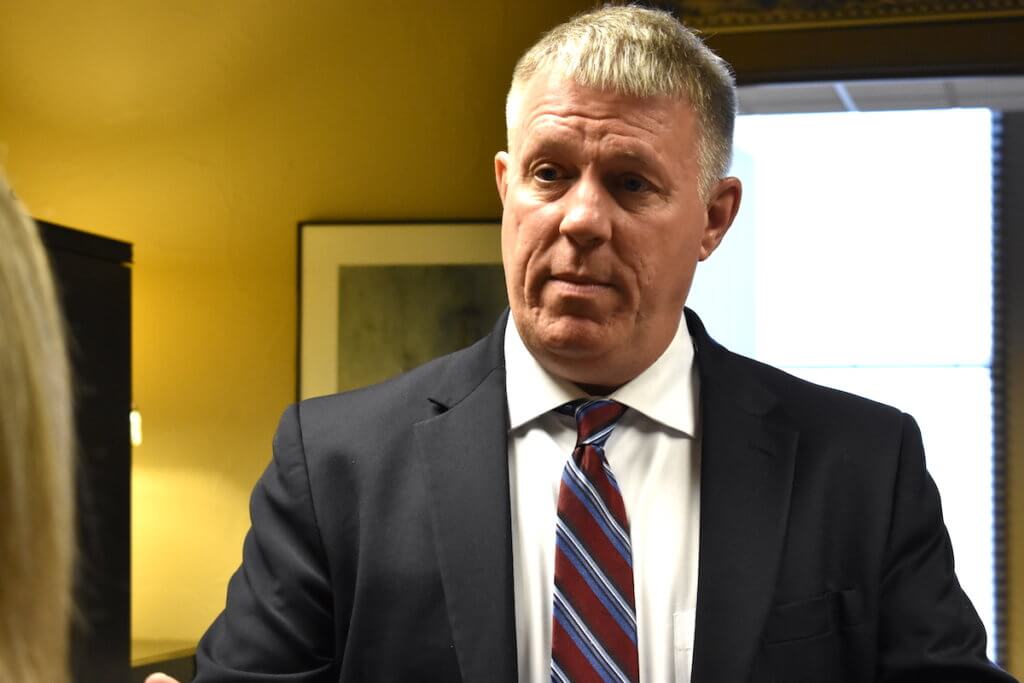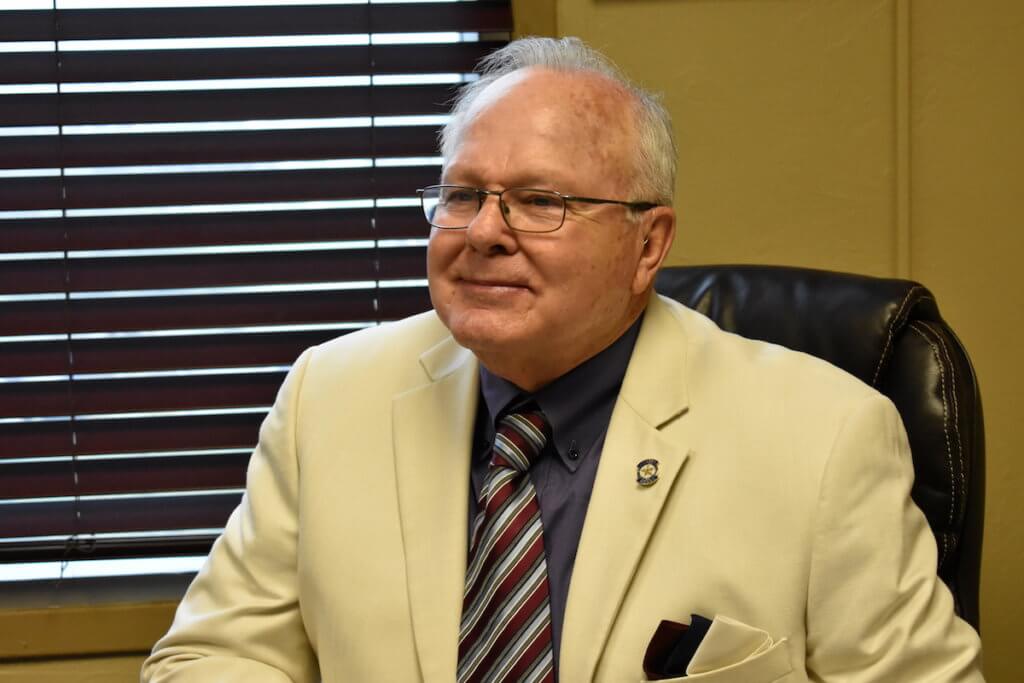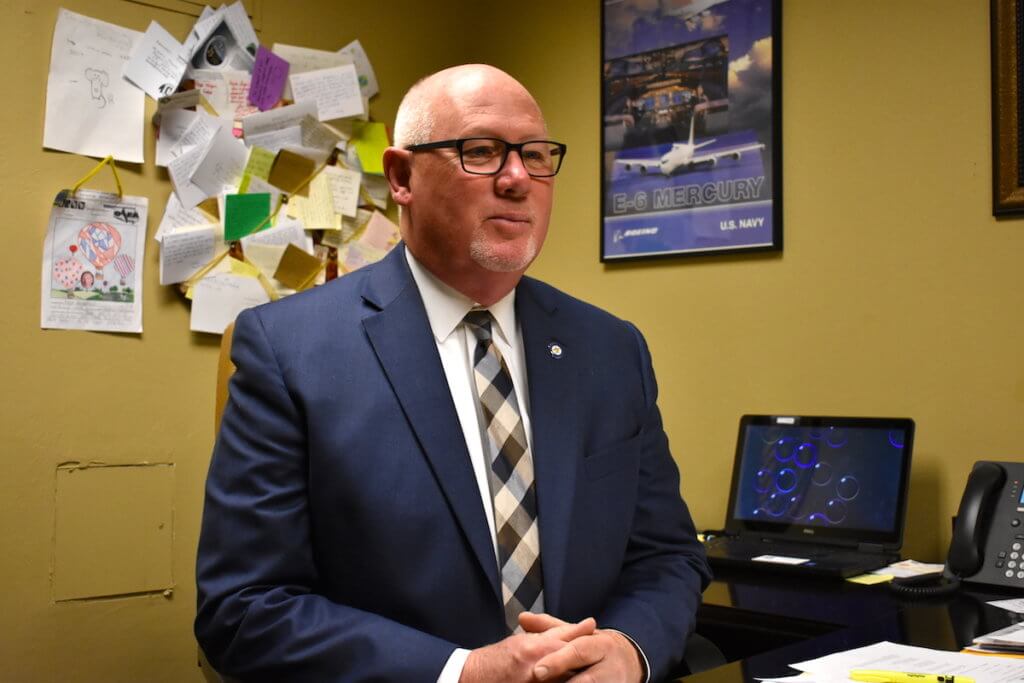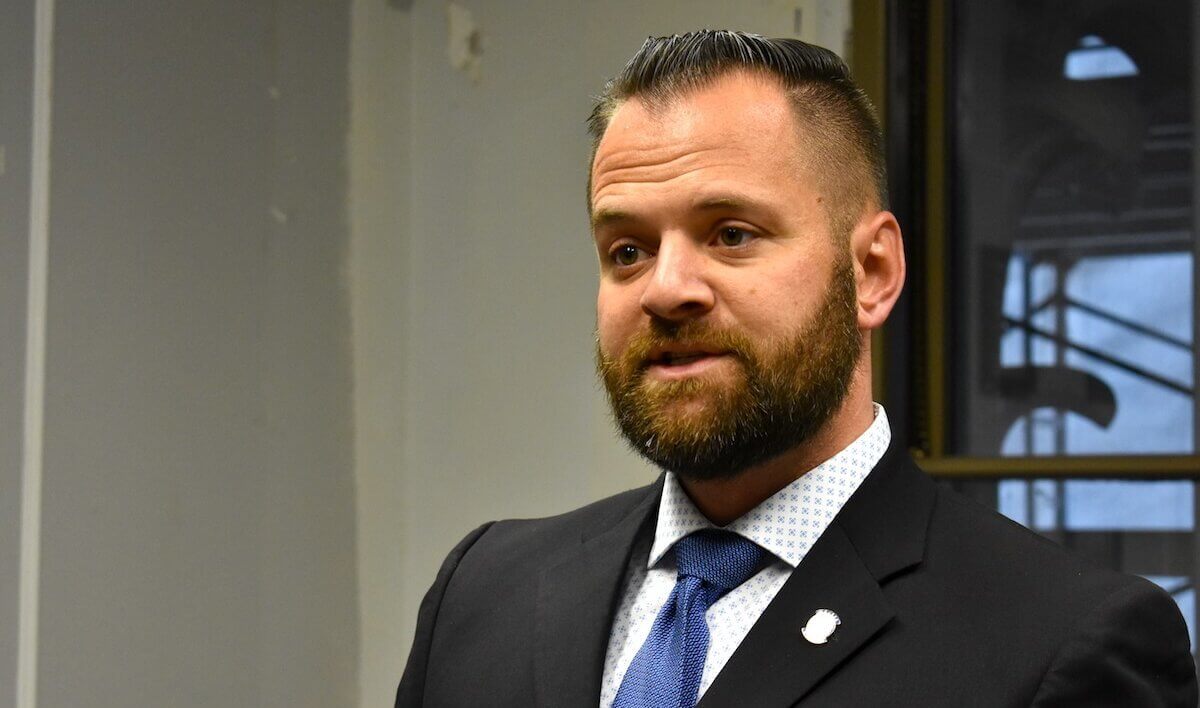When Oklahoma lawmakers passed a historic revenue package to fund teacher pay raises and education appropriations last week, they did so with three votes to spare in the House and zero votes to spare in the Senate.
Despite broiling public pressure to address education funding, 19 House members and 10 Senate members voted against HB 1010XX last week. Several of those members turned around and voted for raising the minimum teacher pay scale, in turn annoying some colleagues who had supported the controversial tax package that will pay for the teacher raises.
Monday, during an education rally at the Capitol that drew thousands of educators from around the state, NonDoc attempted to interview all 19 representatives who voted against the teacher-pay revenue bill. By the day’s end, 17 of those 19 lawmakers had responded to some variation of three questions:
- What caused you to vote against HB 1010XX’s revenue package?
- What has been your experience with teachers who conducted the ongoing walkout?
- Do you believe the walkout is appropriate?
The following answers were excerpted from interviews that ranged between two and 10 minutes in length.
House of Representatives members who opposed HB 1010XX
John Bennett (R-Sallisaw)
Bennett said he opposed HB 1010XX because he believes it does not fix the problem of government waste.
“Any time you throw money at a problem, you’re not really fixing the problem,” he said. “If you’re not controlling the waste or the money that’s going out, if you don’t address that first, it’s like standing in a boat with a hole in the bottom and water pouring in and you’re trying to dip it all out with a bucket. It might work for a little while, i.e., pass taxes, but eventually you’re going to be overwhelmed because you’re not plugging the hole.”
Bennett also offered his thoughts about the teacher walkout.
“They’re very passionate about what they’re doing, and I can understand that. But I’m not sure many of them even knew that we passed the teacher funding bill,” he said. “A lot of them that came in today, instead of talking about teacher pay raises, they wanted to talk about more money to education. Which, I agree with them, all of them, when they said that. Because $17 million is quite a chunk going in addition (to teacher raises), but maybe we should send more? But before we do that, maybe we should look at why it isn’t getting to the classrooms.”
Kevin Calvey (R-OKC)

Calvey said he voted for the teacher raise but against HB 1010XX’s revenue package because “how you do it matters.”
“Bottom line, I think politicians shouldn’t force people to pay more taxes without letting them vote on it. We already have to have voter approval for property taxes, have to have voter approval for city or county sales taxes,” Calvey said. “It ought to be that way for all state taxes. Just let the people vote on it. Because the voters do have some say about it. The constituent input I get every year is not against raising teacher pay — well a little bit of it is actually. But overall, I would say a majority of people wish to.”
Calvey said his constituents oppose tax increases, and he said he believes a majority of people want to increase education funding by reducing “government waste.”
“Of teachers in my district, it is split between those who are satisfied with what was done and what those who — every teacher wants more,” Calvey said. “That’s kind of a loaded question there. Some are OK with it. Others are dissatisfied.”
Bobby Cleveland (R-Slaughterville)

Cleveland criticized the process House leadership used to bring HB 1010XX and other measures straight to the floor last week.
“I don’t believe the voters elected me to come up here and simply vote for a bill because someone tells me to. I have a right to read a bill, and I think that it’s wrong that we run that in the dead of night,” he said. “You do things in the dark that you wouldn’t do out in the light. And that’s what happened to this bill. The people deserve a right to know what we’re doing up here. They deserve the right to be able to contact their representative and say, ‘Hey, I don’t like this’ or ‘I do like this.’ They wasn’t given that right. And I voted no, and I’m proud of voting no. I’m not just a bunch of cattle following in line. I’m a person. I have a right to know what’s in a bill.”
Cleveland said raising taxes “on the backs of Oklahomans” is “easy.”
“It’s easier than cutting government. It’s easier than having to deal with lobbyists coming in to you. But we had no efficiencies. We had nothing in there. We didn’t try to do anything about cutting government, cutting spending. Nothing. Zero in that bill. I think that we should have tried to do other things before we did that. Now, in that bill, I had already heard there was enough votes to pass the bill. My vote wouldn’t have made any difference.”
Cleveland said he knows teachers had a right to attend the Capitol on Monday, but he expressed disagreement with educators who shut down schools to do so.
“If they want to come up here, they can come up here,” Cleveland said. “I think they should be in school teaching, but if they want to come up here, I think that’s the American way. I will meet with everybody that comes from my schools, I’ll meet with them and talk with them.”
Jeff Coody (R-Lawton)
On the topic of HB 1010XX, Coody said: “It was just another tax increase as far as I was concerned.”
He said that he voted for the bill raising minimum teacher salaries — but not the revenue portion.
RELATED
In their words: Senators explain ‘No’ votes, discuss teacher walkout by Garrett Davis & William W. Savage III
“I’ve just always believed that there were other avenues. There was other available money that could be utilized to fund a teacher pay raise. Possibly not to the extent of the ultimate package, but I’ve never felt like we ought to tax our people, tax our businesses, tax our taxpayers to fund another segment of government,” Coody said. “I’ve never felt like a down economy is the right time to start raising new tax money, and that’s what was being asked. But we go through this cycle every 20 years in Oklahoma, and we always come out of it, we always end up having a surplus, but sometimes our households can’t go and demand a pay raise from their employer just because they ran out of money. We can pay for it when we can afford it, but if you start taxing people, if you tax your businesses, your small business owners, your people, somebody’s got to pay for that. Eventually you’re going to run out of taxpayers, because they’re going to go somewhere where the tax burden isn’t so great.”
Coody said he was not surprised that the teacher walkout occurred even after the raises were passed.
“I kind of anticipated that. You’re all primed to get your point of view out there and demonstrate your solidarity, and I think that’s what they’re doing,” he said. “They’re putting out their point of view. They’re letting their opinion and their voice be heard, and I think that’s reasonable. I feel like once that takes place and once the need is demonstrated, I’m hopeful that they’ll realize that we’ve done what we can do today, and we’re committed to doing more, and we’ll do that as we are able. I’m hopeful that there are reasonable people that understand the situation we’re in. We can’t keep going back to the taxpayers and saying, ‘That’s not enough, that’s not enough. We need more.’”
Tim Downing (R-Purcell)
Downing noted that despite voting against HB 1010XX’s revenue, he “voted for the teacher pay raise, and then the rest of the series of bills as well.”
“There were some different proposals of funding that I would have been a yes on that other members would not have. That particular one, the tax increases on fuel, on tobacco, especially those from my district, the feedback that I’ve gotten is they’ve been opposed to the tax increase but not to the teacher pay raise. If you recall the state question (779 for a penny sales tax to fund education), I got elected on the same ballot in November. In my district I got about 36 percent support,” Downing said. “My district voted against the funding being a tax increase, not against a teacher pay raise itself. That’s been the position I’ve tried to take. It is challenging. It’s a frustrating issue for people on both sides of that.”
Downing said he used his Monday interactions with teachers as a way to explain parts of the teacher pay raise deal.
“The people I’ve talked to from my district, for the most part I don’t think most of my schools have closed. Those that did I think are doing a one-day participation. And what I’m hearing is that they want to see more funding overall for education. There has been some confusion as to what has occurred. I know our speaker (…) has done a good job at trying to message that. I’ve tried to do the same and explain that it’s literally a 19 percent increase overall in education funding. It helped just to talk it out today to those who came up. They were very kind and very courteous, and I had a very good engagement with my teachers.”
Travis Dunlap (R-Bartlesville)
Dunlap said he opposed HB 1010XX for a couple of reasons, including the hotel-motel tax, which has now been pulled out of the package.
“I prefer to send votes to the people when we are considering their money,” Dunlap said. “I wouldn’t necessarily support that other than the fact that voters in State Question 640 told us that’s what their preference was.”
Dunlap expressed reservation about the tax increases passed last week, and he also emphasized that the Oklahoma Education Association – which has helped spearhead the walkout – does not speak for all teachers.
“The OEA does not represent anywhere close to the total number of teachers. I don’t know what the exact number is, but they represent (…) about a quarter to a third of the number of teachers. Some of the teachers are happy for what has taken place. Some of the teachers want more. I think what is clear about all teachers is that they are most concerned about most students. That is always their sentiment, and I appreciate that sentiment.”
John Enns (R-Enid)
On HB 1010XX, Enns said the “main issue” was that he viewed it as “a bad bill.”
“I thought the Step Up Oklahoma plan was much better. It had more people involved. Instead, we’re figuring out we’re going to pick on one industry. It’s actually two industries, but the hotel-motel tax got taken out. Gross production tax obviously at 5 percent, but we’re making it retroactive. So that means, they’re sitting at these wells that have been drilled, they’re sitting at 2 percent. We’re going to come in and say, ‘Sorry guys, we’re breaking the deal and raising it 5 percent.’ Now who in business would want to do something like that?
“If I’m in the cattle business, and you tell me you’re going to tax my cattle at 2 percent, and I go out and buy them thinking that’s going to happen, and all of a sudden you say, ‘Sorry, we’re going to raise it to five.’ That’s more than my death rate that I figure in. I’m like, I would be mad. I would be going nuts.”
Enns said he felt like the Legislature picked “winners and losers” in passing the revenue package. Asked his experiences Monday talking to educators at the Capitol, he said that while some people were “very nice,” he also encountered “some very rude people up here.”
“That does not benefit them at all. I’ve had the general public come to me now and say, ‘Why are they doing this?’ They’re getting very upset with them — the ones that are deciding to walk out. I think they need to go home and teach. That is being said from a previous teacher [who has] a wife that is a teacher. We’ve given you a raise. We can’t give you everything. We’ve got a whole state to run. Department of Corrections is asking for $1 billion more this year, and we can’t have the feds come in and take over Department of Corrections. If we do, all bets are off. We will be in big trouble.”
George Faught (R-Muskogee)
Faught said he voted against HB 1010XX’s revenue because he campaigned “to keep taxes low.”
“Obviously, once it passed you want to make sure the money gets designated where it’s going, so that’s why the yes vote (on the bill to raise the minimum salary schedule),” he said. “We wanted to make sure the tax increase we passed (came) with the subsequent pay increases afterwards, which I voted for — which was the teacher pay and the support pay — you want to make sure that that money gets sent to them.”
Faught said he did not believe his vote for the pay raises but against the revenue was incongruent.
“I don’t see that it is because you do want accountability in government, so if money is supposed to be designated to go somewhere, you certainly would want it to do that,” he said.
He said he saw “a lot of passion” from Capitol-goers Monday.
“People here want to get their points across, which is good dialogue,” Faught said. “Everyone that I’ve talked to so far is very invested, but they’ve been very professional, so that’s what a representative government is about.”
Roger Ford (R-Midwest City)

Ford said he believed his voting record indicates that he supports education funding, but he said his vote against HB 1011XX was reflective of “red flags” he saw when pressed to consider new bills late at night.
“For one thing, I thought the hotel-motel fee — and I did call some people as quickly as I could asking about that — my concern was that might be found unconstitutional because of the inequity,” he said. “It was a fee, not a percentage. And a $5 fee on a $40 room is like 12.5 percent. A $5 fee on a $300 room is less than 2 percent and because there was inequity there I was concerned.”
Ford said he believed the impending teacher walkout influenced the speed with which legislative leaders passed the teacher pay raise revenue measure.
“I knew when I voted no I would take some hits. I knew that, because I said I support education from the beginning. The first revenue bill that I had to vote on last year, I voted no on because it included nothing for education. The next two I voted yes on because they did include education,” Ford said. “I am an advocate for education. I think it’s important, not just to educators, it’s important to the future to our society in Oklahoma. So, I knew when I voted no I would take some hits on this. The easiest thing I could do is just vote yes and hope it all worked out well. But based on my concerns, I just couldn’t vote yes. Now, in a few days, I may have been able to. If I got my questions answered and knew how this funding was going to take place in the future, I could have been a yes answer.”
Ford said it was “a shame” that teachers were having to walk out of school to place pressure on the Legislature for adequate education funding.
“I do support the walkout. Mid-Del school districts in my district, that’s my education system for where I represent,” he said. “I was at their school board meeting when they did their referendum to agree to the walk out, and I supported that 100 percent. I think it’s a shame that we’re to this point. I think it’s a shame our kids are not in class today. But I don’t know how else they’re going to create attention.”
Tom Gann (R-Inola)
Staff in Gann’s office said the first-term representative was too busy returning constituent phone calls to answer questions from media Monday afternoon.
Tommy Hardin (R-Madill)
Hardin expressed reservation over the supplanting provisions in the revenue package that would direct the new $1 cigarette tax to a health care fund and the new fuel taxes toward transportation infrastructure. He discussed the cigarette tax in further detail.
“The cigarette tax to me, I’ve agreed to 75 cents or 50 cents a year for the next three years, but just to make it $1.50 or $1, to me — in the border counties — just like we lose teachers over the lines to Texas, we’ll be losing people going down to Texas now to buy their cigarettes, to buy their groceries and everything else tax free while they’re down there. They’ll shop. I’m just worried about hurting the small businesses.”
As for the teacher walkout, Hardin said citizens have a right to “petition their government however they see fit.”
“My fear is, how is that going to be taken by the legislators? Are they getting beat up? Now they’re going to … I don’t know what is liable to come of it with other legislators,” he said. “Are they going to be mad now and try to pass legislation that would hurt, or what, I’m not sure. You’ve always got that group that’ll try to get paybacks for something.”
Scott McEachin (R-Tulsa)
McEachin said he has voted against the major tax packages before the Legislature since the beginning of last year.
“My position on 1010XX was the same as on 1054X and Plan A, Plan A+, however many plans we’ve had and that is that, during the first regular session of the 56th Legislature, I voted for (other) revenue measures, and that resulted in an increase in recurring revenue of $331 million projected for Fiscal Year 2019, which is the next one that’s coming.”
He noted that he voted for raising the teacher pay scale.
“You can note the inconsistency if you wish, but to me the common denominator is (…) you had 79 people decide that that was the way forward,” he said. “I wasn’t one of those people. But legislation is a team sport and it’s a consensus-building activity (so you want to) make sure [money] goes where it’s supposed to go.”
Jason Murphey (R-Guthrie)
“I don’t vote for tax increases,” Murphey said of HB 1010XX. “It was a comprehensive proposal that did not go through committee. (It) spent a lot of money and just did not have proper due process and consideration. The only one of that group (of bills) that I think I voted for was setting up a revolving fund. That was not a comprehensive proposal in the least, and I probably shouldn’t have voted for that just on principle.”
Murphey said he asked constituent teachers to consider a scenario where issues they opposed — such as vouchers for private school education — would be rushed through the House in a manner similar to HB 1010XX.
“That can mean (a lot) to them and the issues that they care about. And that message has been well-received,” he said. “I feel an obligation to stand by the verbal contract I have with the constituency regarding not raising their taxes. And I’ve heard from them that they appreciate me keeping my word.”
Mike Ritze (R-Broken Arrow)
Ritze said he voted for raising the teacher pay scale “without reservation,” but he said his opposition to the revenue package was different.
“There were probably two or three things that were log jams for me. The first one was the cigarette tax, which I hate tobacco as a physician. I hate it,” Ritze said. “But the problem is, it was going to the general fund, and it wasn’t taxing the smoke shops. I felt like, from my constituents with QuikTrip and some of the others, it would put them in an unfair disadvantage.”
He said that, in a republic, anyone has the right to assemble peacefully like teachers did Monday in the Capitol.
“Where do we cross the line between a walkout and a strike?” Ritze pondered when asked whether he supported the walkout lasting through the week’s end. “I’ve had mixed opinions that if it goes past what the school board allows, then it’s a strike and that’s illegal. But again, in a republic, I think we all have that right to do what we want as far as peaceful rallies and get-togethers and everything.”
Sean Roberts (R-Hominy)
Roberts said he opposed HB 1010XX as a matter of principle.
“First, I made an oath to the taxpayers back home that I wouldn’t come up here and raise taxes, especially when we have the option to send it to the vote of people. The main factor is we’re still putting it on the backs of the poor,” he said. “Students in the classroom who don’t have shoes or their parents can’t buy them lunches and take care of their kids, we’re going to go and reach into their pockets, take more of their money to help fund some of the issues.”
Roberts said he will always listen to the concerns of teachers in his district.
“I know some school districts in my area are going back in tomorrow, so I’m not going to say whether or not they should go back or not. A lot of the problems — having the discussions really helps. That way if there’s miscommunication — ’cause I’ve seen a lot of that out there, especially on social media — misinformation about what’s going on. A lot of that will be taken care of with the discussions we’re having today. So that may solve some of the issues, but not all of them.”
Roberts referred to passing the supermajority tax measure as taking “the easy road.”
“I told them, I think all but one person voted for the teacher pay raise. It’s never about whether we thought teachers should get a raise or not, it was more about the destination we take,” he said. “Do we take the easy road, which is just to raise taxes? Or do we take the hard road and dig down, do the audits, find the waste and cut the fat to make sure education gets what they need.”
Chuck Strohm (R-Jenks)
NonDoc was unable to reach Strohm in his office Monday, and a call to his cell phone went unreturned by Tuesday morning.
Tess Teague (R-OKC)
Teague said she had many educators reach out before last week’s vote to ask her to oppose HB 1011XX, which she did.
“Their reasons were different than mine. But in their eyes, it wasn’t enough. Obviously we’re seeing that now. We knew that it wasn’t going to stop the walkout — or at least I knew because I talked to my teachers before,” Teague said. “But like I said, their reasons were a little different than mine. I have been telling my teachers today and after that vote that I didn’t believe tying a teacher pay raise to the most volatile commodity in the state of Oklahoma was the responsible thing to do. I think it could severely deplete itself in a year or two years. And honestly that’s disingenuous to me.”
Teague said her experience Monday with teachers was “very positive” and that she discussed the state’s funding problems with constituents.
“We’re just doing the easy thing, which is taxation; throwing taxes after taxes. It looks like we’re just patting ourselves on the back and going home, but we’re not doing the right thing,” she said. “We have structural issues in the state of Oklahoma, and until we start giving a scrutinizing eye to those and really diving in to do the hard work, Band-Aid taxation is not going to fix it. That bill might have passed, but if we don’t fix our structural issues we’re going to be right back here doing the same thing.”
Kevin West (R-Moore)
Kevin West said much of his opposition to HB 1010XX had to do with the “regressiveness” of cigarette and fuel taxes.
“Also tying those kind of taxes to something as important as education when we know that oil and gas is a volatile market,” West said. “We know that cigarettes, those sales are going to go down. We lose $2 million sales per year anyway without any change in price. So we know that’s going to go down. So that was a lot of my position on most of these plans that have been coming up.”
West said he had productive conversations with teachers Monday.
“What they want, they want to see us go ahead and finish the job that we have. And where I hope that we turn our attention to is in things like the tax credits, some of the efficiencies and some of those kind of things,” he said. “Some of them will take a few years. But we’re literally writing checks to industry to come here. Some of those we have a really good return on investment, but not all of them. So I think that’s an area where we can look. That is as close to a guaranteed revenue string that we can see, ’cause we know we’re writing these checks, and if we’re simply not writing those checks then we have that money. Those are the things that I’ve been looking at.”
Rick West (R-Heavener)
Of HB 1010XX, Rick West said: “It’s not going to fund [the teacher raises]. The reason it’s not going to fund it is because it’s not going to bring in the money they say it will. Cigarette tax will not bring in that much money. Never has. It’s like the other taxes. It’s like the gambling and horse racing and alcohol and the last cigarette tax. They just don’t bring in the amount of money they say they will.”
He said the gross production tax on oil and gas will be unstable.
“It’s going to be up and down for a barrel of oil. It’s going to fluctuate. It could be $100, or it could be $28. So these taxes that we’ve passed, we’re going to end up in a year, we’re going to end up having to find additional revenue to cover up to pay for what we’ve done last Monday, because it’s not going to be there. We gotta look for other sources of revenue besides raising taxes.”
On his opinion of the teacher walkout, West expressed neutrality and uncertainty about how long schools might remain closed.
“I’m glad they’re up here. I’m glad they’re being part of the process. I don’t have a problem with that at all. They’re passionate about what they believe in, what they’re trying to do. They’ve become a part of the process. It’s their decision to make,” West said. “I don’t have any kids in school. I have a grandson, but he’s only in second grade. I don’t know what the outcomes will be. I don’t know what the problems will be. But that’s up to administration. That’s up to superintendents of school boards. That’s their deal.”
(Editor’s note: Carson Williams contributed to this story.)























